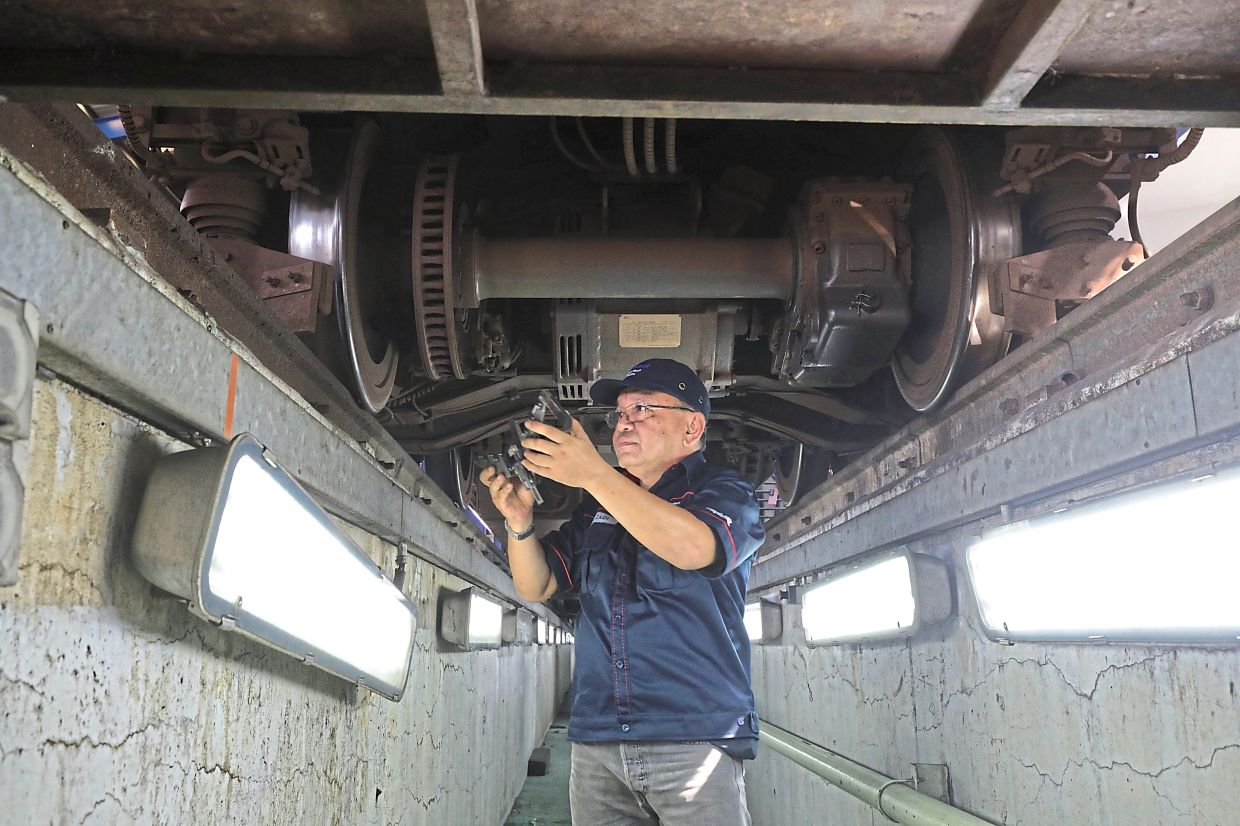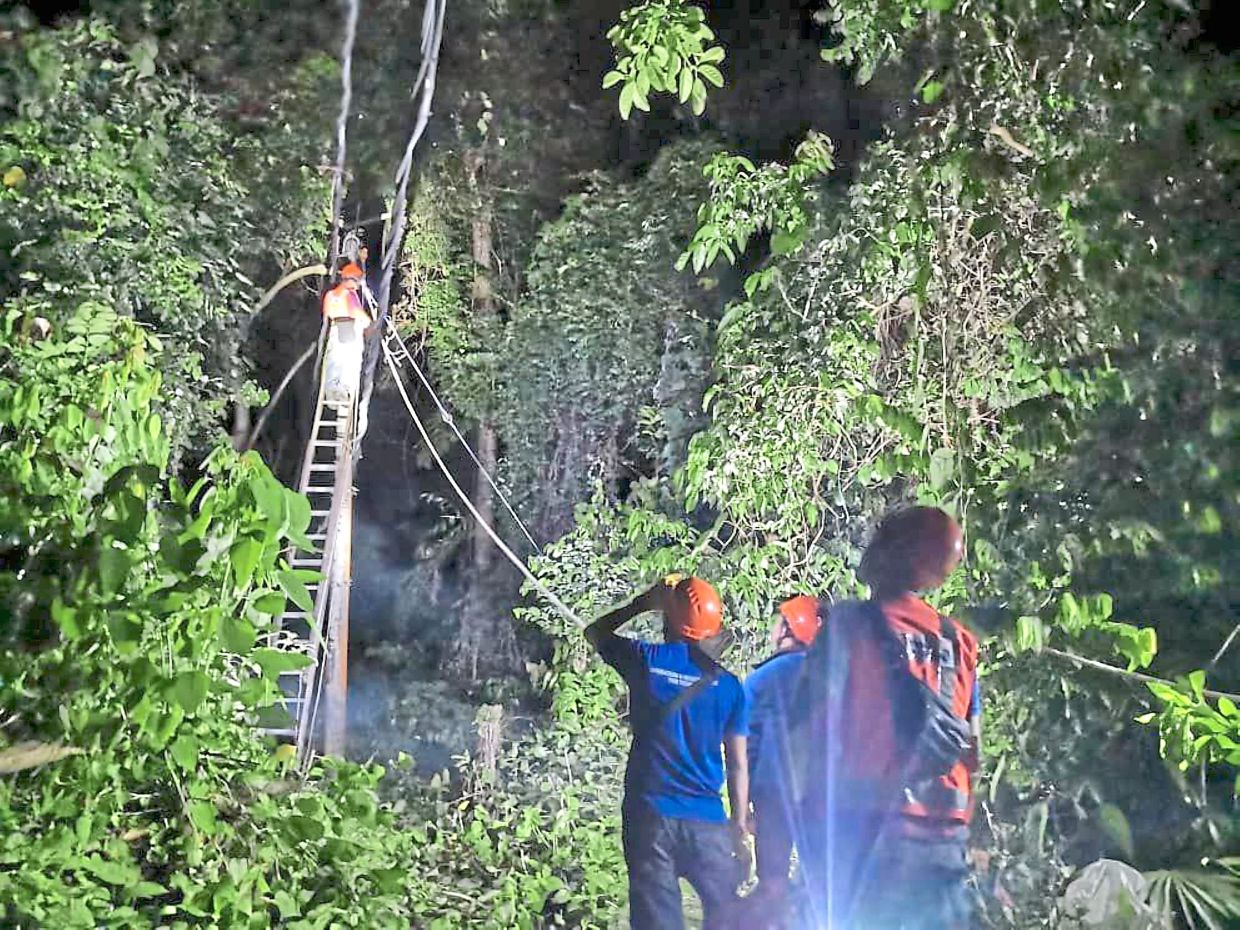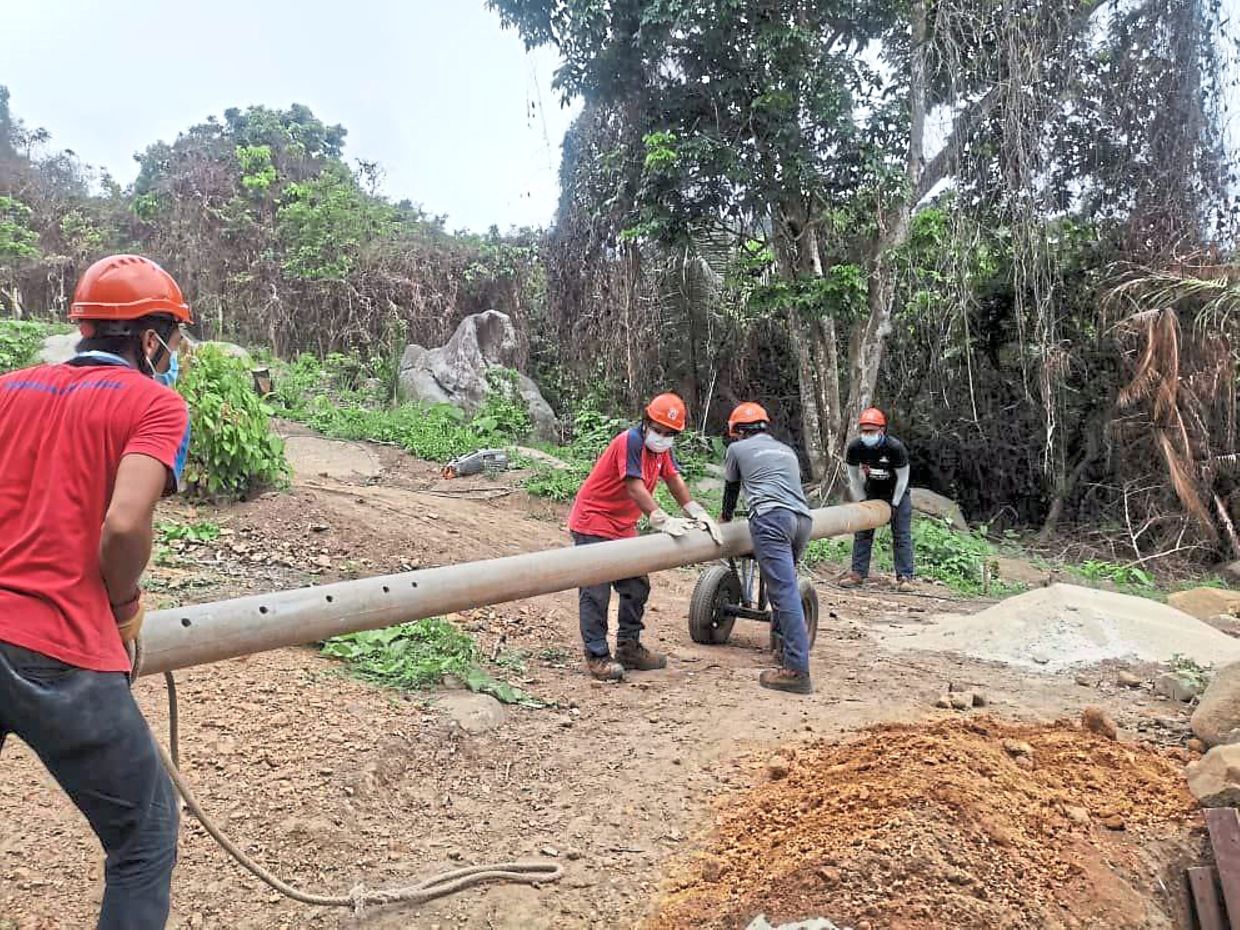DIVING deep into Kuala Lumpur’s drains to carry out cleaning works is no easy job, but someone has to get it done.
For Mohd Irfan Mohd Redzuan, 27, a general worker with Alam Flora Sdn Bhd, that is his daily routine.
“I was a bit scared when I started this job three years ago, but now I am used to it,” he told StarMetro.
The Perak-born is among countless number of workers who took on 3D (difficult, dangerous and dirty) jobs to make a living.
In conjunction with Labour Day, StarMetro takes a look at those who do such jobs, to get a better understanding of the challenges they face.
Those involved in cleaning works and those in maintenance and inspection of critical facilities, related their experiences.
Mohd Irfan is part of a small team tasked with carrying out drain cleanup in central areas in Kuala Lumpur, such as Bukit Bintang and Chow Kit.

Although the outside might look decent, the inside of a drain could be a totally different story, he said.
“I once encountered a snake while cleaning a drain, but thankfully it fled and I climbed out of the drain in panic.
“It took me several days to get over the paranoia due to the incident,” said Mohd Irfan with a chuckle.
His co-worker Francis Patinadan, 37, who has been doing the job for about 12 years, said reptiles such as monitor lizards were common.
He also found a dog carcass once.
“And that is not even the worst incident. There had been times when the drain partially collapsed while I was inside,” he added.
During one unfortunate incident, Francis sustained injury after a sharp metal grazed his left palm.
“I applied salve but it began to swell the next day. The doctor treating me said the metal might have been rusty.

“Afterwards, the injury worsened and I was given leave for two months to recover,” Francis recalled.
But the father-of-eight was undeterred. He said the job was his way of fulfilling his civic duty to the nation and the capital.
“Occasionally, I get international tourists stopping by to get a closer look at what I’m doing.
“Sometimes I explain to them about my work. This is my city, and if I don’t do it, who else will,” he said.
Commute made easy
As Alam Flora workers clean up Kuala Lumpur’s underbelly, Rapid Rail Sdn Bhd employees are busy making sure the city’s residents get to their destinations on time and safely.
Iruthayaraj Adaikalam, 58, a technician in charge of train network maintenance at LRT Ampang Line, said his job involved inspecting the railway tracks for defects and carrying out repairs.
“We work in three shifts – 7am to 3pm, 3pm to 11pm and 11pm to 7am – to ensure maintenance is done round the clock,” he said.

A father of three, Iruthayaraj said strict compliance with procedure was vital to ensure safety.
“We must keep in mind that we are surrounded by electrical components at high voltage.
“It is important to inform our superiors before carrying out work, from when it starts, its duration and how many technicians are involved,” he said.
Rozaidy Razlan, 44, foreman at LRT Ampang Line, was part of the team maintaining the trains during operation hours.
Working in two shifts, 7am to 3pm and 3pm to 11pm, the team checks on complaints by passengers and disruptions during
service.
Technical concerns aside, the real challenge, Rozaidy said, was when disruption occurred during peak hours and the repair crew was faced with irate passengers.

“By the time we arrive, they might have been stranded for a while, so tension will be high.
“Some passengers may lash out at us, but we must remain professional and explain the situation,” he highlighted.
He could not forget the incident when trees fell onto a track near the Chan Sow Lin station in the evening a few years back.
“The repair crew had to find their way through the big crowd.
“Thankfully, passengers were understanding when they saw us in uniform and that we were there to help,” he added.
During the incident on April 12, 2021, passengers were evacuated to make way for repairs.
LRT Ampang Line preventive maintenance supervisor Zaidi Khairudin, 57, said his crew typically worked behind the scene to upkeep the trains outside of their service hours.
Armed with nearly four decades of experience in train maintenance, Zaidi said each train required servicing at least once a month.

The father-of-four from Setapak was particular about workplace hazards and placed emphasis on the wearing of protective equipment.
“The depot is littered with hazards – there are machine oil and electrical components everywhere,” he said.
“Staff must be in proper working attire at all times to minimise the risk of injury,” he added.
Outside the capital
Mohd Izham Mohd Sukeri, a Tenaga Nasional Bhd (TNB) senior technician posted to Pulau Tioman in Pahang, is among a handful of personnel tasked with maintaining power supply and infrastructure in Kampung Mukut.
Based in a remote area surrounded by thick forest and mountains, he and his co-workers had to get there on foot.
“There are no roads and we have to travel by boat.
“Each personnel has to carry equipment as heavy as 10kg to 20kg,” said Mohd Izham, who has three children.

Things got more challenging when the ferry service connecting Pulau Tioman and the mainland (Pahang) was suspended for three weeks.
“This happens every year during monsoon, causing immense emotional stress,” he said.
Mohd Izham said support from colleagues and dedication to work kept him grounded during difficult times.
Another TNB senior technician, Tharmaindra Kumar Jayaram regularly treks into forest reserves in Terengganu and Kelantan to check on power generators and networks.
The father-of-two from Penang said his task involved inspecting high-voltage grids of between 275kV and 500kV.
“To ensure continuous and uninterrupted electricity supply, inspections must be carried out without cutting off power.
“I will be suspended 55m above ground to allow me to reach the transmission tower,” he said.
Tharmaindra said he and his colleagues took a helicopter to get to remote locations in the east coast.
Maintenance work often took days, he noted, which meant they had to be prepared to camp there, exposing them to the elements.
“It is difficult work, but no words can describe the satisfaction I feel when seeing it get done,” he said.









